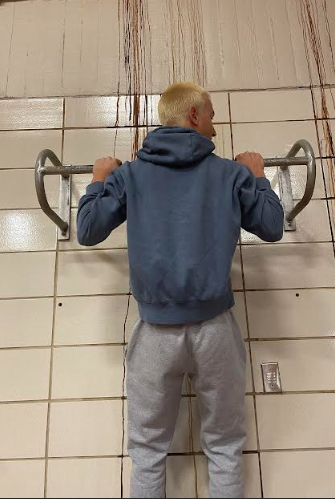We Should Push Back School Start Times

Picture this. It’s first period. A portion of the class is groggy and unable to concentrate, another portion of the class is asleep on their desks, and the last portion of the class hasn’t even shown up yet. They’ll be late because they most likely slept in. Sounds familiar right? This is exactly how I would describe a typical morning in the classroom. When school starts at 7:42 AM, no one is enthused about being up that early. High schools need to push back their school start times.
The amount of sleep the human body needs varies based on age. High school-aged teenagers need 8-10 hours of sleep per night. However, studies have shown that most American teens aren’t getting enough sleep. Over 70 percent are not. It’s clear that many students are going to bed late and in return, having to get up early for school. This lack of sleep will impact a student’s overall physical and mental health, as well as their academic success. According to the American Academy of Sleep Medicine and the American Academy of Pediatrics, the recommended start times for both middle and high school are no earlier than 8:30 a.m. These two organizations have confirmed that they want to ensure students get satisfactory sleep so that they are alert and prepared while at school.
An article published on the Sleep Foundation website goes into depth about the concerns raised with early school start times and the resulting insufficient sleep. The concerns include increased likelihood for participating in risk-taking behaviors, such as bullying and fighting as well as a greater chance of unhealthy behaviors, such as alcohol and drug use. Higher risk of athletic injury, an increase of depressive symptoms and suicidal ideation, as well as an increased risk of motor vehicle accidents. This same article also goes into depth about why starting later is actually better. The benefits include improved attendance at school, decreased tardiness, better student grades, fewer occurrences of falling asleep in class, reduced irritability and depressive symptoms, fewer disciplinary issues, as well as a decline in motor vehicle accidents.
Until all public high schools agree to push back school start times, everyone can play an important role in adolescent sleep. An article written by the CDC further proves this point. Parents can model and encourage habits that promote good sleep starting at a young age. Setting a regular bedtime and rising on time including on weekends. Adolescents with parent-set bedtimes usually tend to get more sleep than those whose parents do not set bedtimes. Parents can also set a “media curfew” as well. It is a proven fact that technology use is a big contributor to late bedtimes. Removing this distraction can be beneficial. Healthcare professionals can make an emphasis on the importance of adequate sleep and factors that contribute to insufficient sleep among adolescents. School officials can better educate themselves about the connection between sleep and school start times. Everyone has a role!
Many adults may argue that we should just keep school start times the same. They’ll say things like, “We all had to wake up early for school.” or, “It’s not that big a deal you’ll live.”
If we can make this change, there will be fewer groggy students with tired eyes, fewer sleepy children, and higher attendance.
So if I haven’t made myself clear, we need to push back school start times until at least 8:30 AM.

Hi! My name is Gia Sico and I’m a junior at Triton High School.
During the fall, you’re likely to catch me outside playing field hockey with our...




